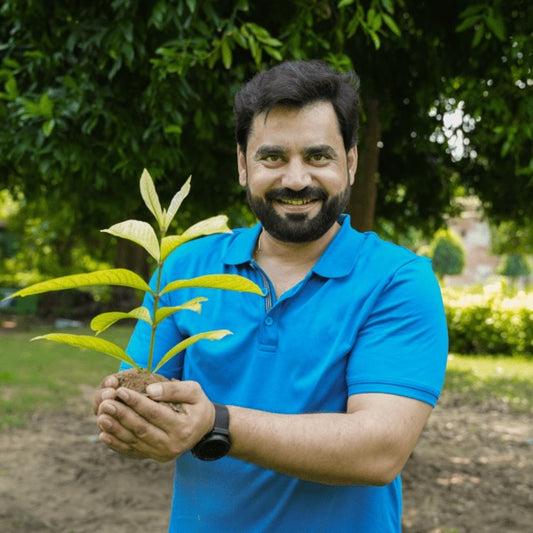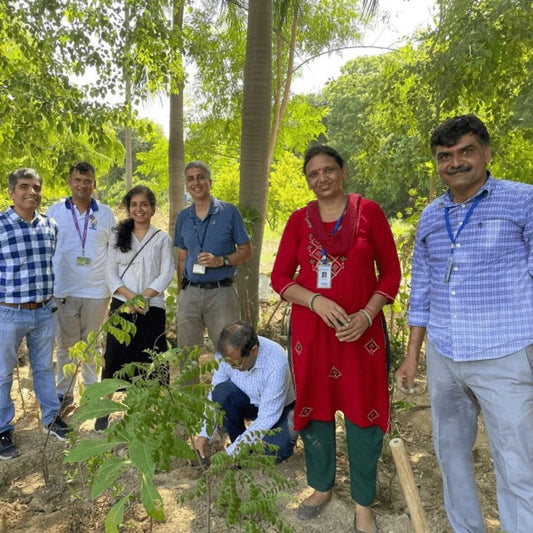
Environmental Sustainability: A Holistic Approach to Preserving Our Planet
Environmental sustainability is the practice of interacting with the planet in ways that preserve natural resources and ecosystems for future generations. It involves a holistic approach that encompasses various practices such as tree plantation, reforestation, water conservation, and land conservation.
These efforts are critical in mitigating the effects of climate change, preserving biodiversity, and ensuring the health and well-being of all living organisms. The Grow Billion Trees Foundation is dedicated to promoting environmental sustainability through its diverse initiatives.
The Importance of Environmental Sustainability
Environmental sustainability is essential for maintaining the health of our planet. It addresses the overexploitation of natural resources and aims to create a balance where human needs are met without compromising the ability of future generations to meet their own needs. This balance is vital for:
- Climate Regulation: Forests and water bodies play a significant role in regulating the Earth’s climate by absorbing carbon dioxide and maintaining the hydrological cycle.
- Biodiversity Conservation: Sustainable practices help preserve diverse ecosystems and the species that inhabit them.
- Resource Management: Ensuring the sustainable use of resources prevents depletion and maintains ecological balance.
Tree Plantation and Reforestation
Tree plantation and reforestation are pivotal components of environmental sustainability. These activities involve planting trees in areas where forests have been depleted (reforestation) or in new areas (afforestation). The benefits of these practices include:
- Carbon Sequestration: Trees absorb carbon dioxide, helping to mitigate the greenhouse effect and combat climate change.
- Habitat Creation: Forests provide habitats for a myriad of species, promoting biodiversity.
- Soil Conservation: Trees prevent soil erosion by stabilizing the soil with their root systems.
- Water Cycle Regulation: Forests play a critical role in the water cycle by maintaining groundwater levels and promoting precipitation through transpiration.
Water Conservation
Water conservation involves the sustainable management of water resources to ensure their availability for future generations. Key practices include:
- Efficient Water Use: Implementing technologies and practices that reduce water waste in agriculture, industry, and households.
- Rainwater Harvesting: Collecting and storing rainwater for future use, reducing reliance on groundwater.
- Watershed Management: Protecting and restoring watersheds to ensure clean and reliable water supplies.
- Pollution Prevention: Reducing the discharge of pollutants into water bodies to preserve water quality.
Land Conservation
Land conservation aims to protect natural landscapes from degradation and overuse. It includes various strategies such as:
- Protected Areas: Establishing national parks, wildlife reserves, and conservation areas to safeguard ecosystems and biodiversity.
- Sustainable Agriculture: Promoting agricultural practices that maintain soil health, reduce chemical use, and increase crop diversity.
- Erosion Control: Implementing measures like terracing, planting cover crops, and building check dams to prevent soil erosion.
- Urban Planning: Designing cities that minimize environmental impact through green spaces, sustainable infrastructure, and reduced sprawl.
The Role of Community and Government
Environmental sustainability requires a collaborative effort between communities, governments, and organizations. Key actions include:
- Policy Implementation: Governments must enact and enforce policies that promote sustainable practices, such as environmental protection laws, incentives for green technologies, and penalties for pollution.
- Community Engagement: Educating and involving local communities in conservation efforts ensures the success and sustainability of these initiatives. Community-led projects can lead to more effective and culturally appropriate solutions.
- Corporate Responsibility: Businesses have a significant role in promoting sustainability by adopting eco-friendly practices, reducing waste, and investing in renewable energy.
Grow Billion Trees Foundation's Commitment
The Grow Billion Trees Foundation is committed to promoting environmental sustainability through a variety of initiatives. We focus on tree planting, reforestation projects, and conservation efforts to protect natural resources. Our programs aim to engage communities, support government policies, and collaborate with businesses to create a sustainable future. By investing in environmental sustainability, we strive to mitigate the adverse effects of human activities and preserve the planet for future generations.
Conclusion
Environmental sustainability is a multifaceted approach essential for the well-being of our planet and future generations. By embracing practices such as tree plantation, reforestation, water conservation, and land conservation, we can mitigate the adverse effects of human activities on the environment.
It is a shared responsibility that requires the concerted efforts of individuals, communities, governments, and corporations.
Together, with the commitment of organizations like the Grow Billion Trees Foundation, we can build a sustainable future where the natural world thrives, and human needs are met in harmony with the Earth's ecological systems.
Featured collection
-
Trees for Carbon Neutral Meetings
Regular price From ₹ 299Regular priceUnit price / per -
Trees for Environment
Regular price From ₹ 299Regular priceUnit price / per -
Trees for Farmers
Regular price From ₹ 299Regular priceUnit price / per -
Trees for Van Mahotsav (1st-7th Jul)
Regular price From ₹ 299Regular priceUnit price / per




